Nourish Street founder Beau Haywood reveals years of meth addiction
The man behind a service that delivers meals and support for homeless people north of Brisbane shares the personal story that inspired his charity work ... and the growing threat he faces every day.
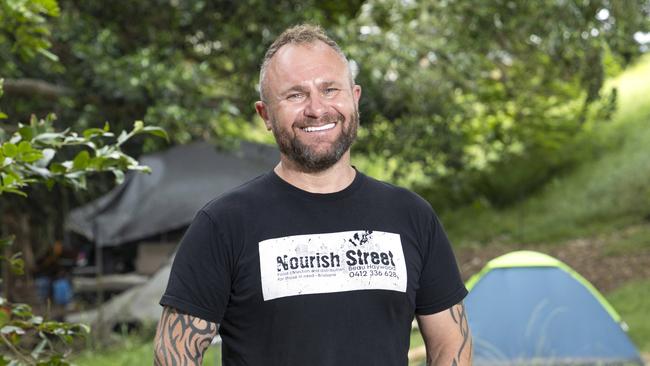
QLD News
Don't miss out on the headlines from QLD News. Followed categories will be added to My News.
A homelessness charity service provider has shared his inspiring story of overcoming a drug addiction and homelessness, while revealing the regular threat of weapons while trying to help as the needs for services grow.
Before founding Nourish Street, a registered charity that provides meals to people sleeping rough in Moreton Bay five days a week, Beau Haywood was addicted to methamphetamine for 25 years, with his drug use ultimately resulting in him becoming homeless.
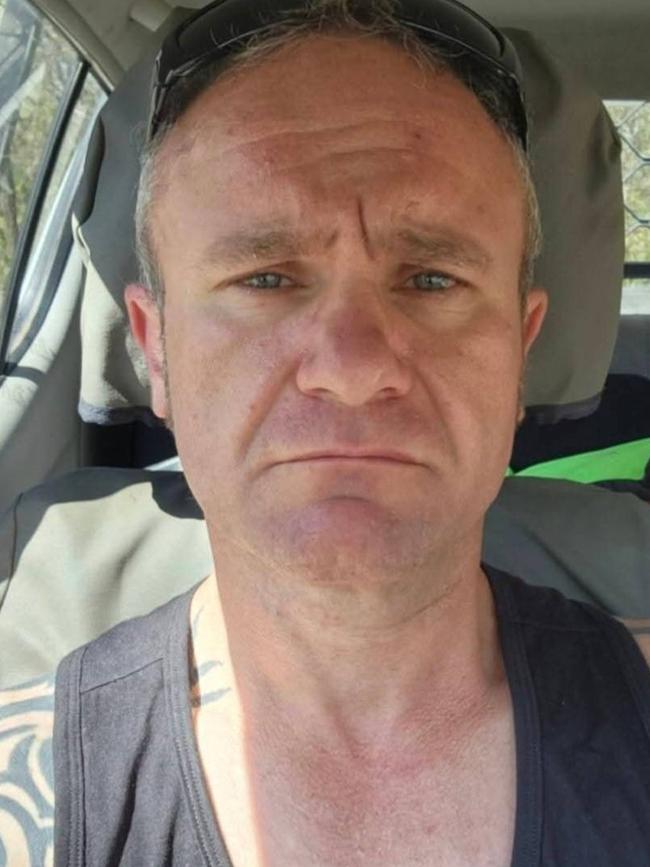
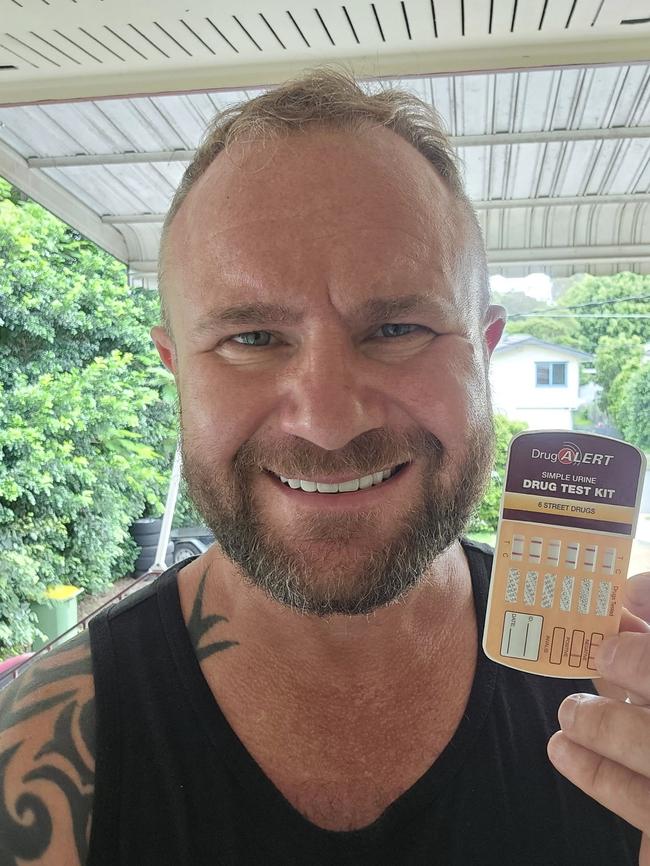
“It started to erode away at my personal relationships, it caused me to act and do things that I normally wouldn’t do, to a point where it destroyed my relationship with my family and my children,” Mr Haywood said.
“My partner had enough of my antics and kicked me out, so I ended up homeless.
“Methamphetamine really f**ked up my life, all the relationships I had and took away everything that I loved.”
While he was homeless, Mr Haywood hit rock bottom and made an attempt on his life, after which he was found unconscious by police.
He then made a decision to enter rehab, undertaking a program at the Moonyah Brisbane Recovery Services Centre, operated by the Salvation Army.
“I went to Moonyah rehab and did the three-month program there and haven’t looked back,” he said.
In the months after he became clean in October 2023, Mr Haywood founded Nourish Street.
“We deliver between 100 and 120 meals, five nights a week, to about 120 homeless people in Moreton Bay,” he said.
“It takes me about five-and-a-half hours each night to distribute the meals.”
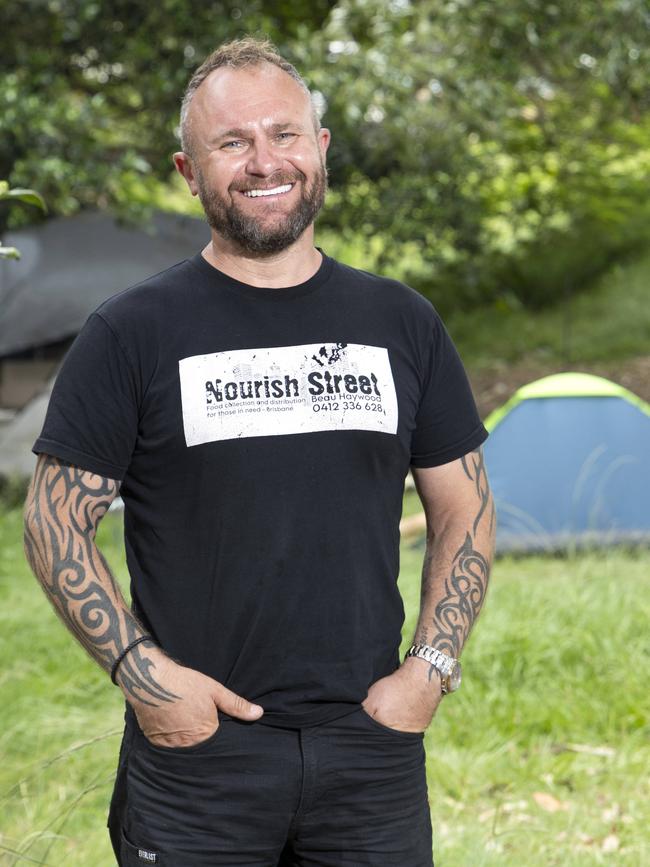
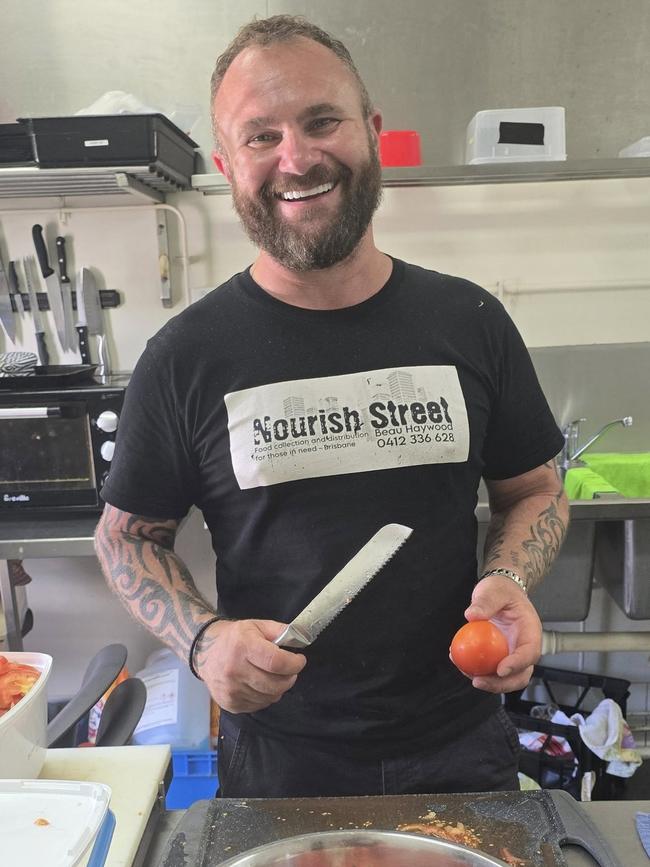
Mr Haywood said while he and his partner prepared meals themselves, they had received support from several businesses.
“Nando’s supplies us with chicken meals twice a month for us to distribute. We’ve also got Domino’s and Grill’d jumping on board once a month,” he said.
“We also get food from the Brisbane Entertainment Centre and Costco as well.”
While most of the time he feels safe, Mr Haywood conceded that there was “the threat of weapons all the time”.
“You’re going into a lot of places where people are camping,” he said.
“When people camp they use knives, they have hammers, they have axes, they have saws, so you’ve got the threat of weapons all the time.
“There’s only been a couple of times I’ve been in an unsafe situation. I got tasered a few weeks back by someone who made a homemade taser.
“He did it out of fun though, he thought it was funny. I didn’t see the funny side in it.”
He added that it was important to be mindful that a lot of people experiencing homelessness suffer mental health issues.
“Almost everyone who is homeless has mental health issues,” he said.
“Generally, when you become homeless, the first thing that kicks in is depression.
“So you’ve always got to be mindful of people’s mental health out there.
“I see people at their absolute worst, I probably have someone break down and cry on my shoulder almost every night.”
Mr Haywood said his personal backstory allowed him to empathise and connect with people that were battling with drug addiction and substance abuse on the streets.
“Since we’ve been doing this, I’ve been able to share my story to those out there struggling with addiction, and we’ve got six people to go to rehab so far, which is a massive win,” he said.
“No one who is an addict wants to be an addict.”
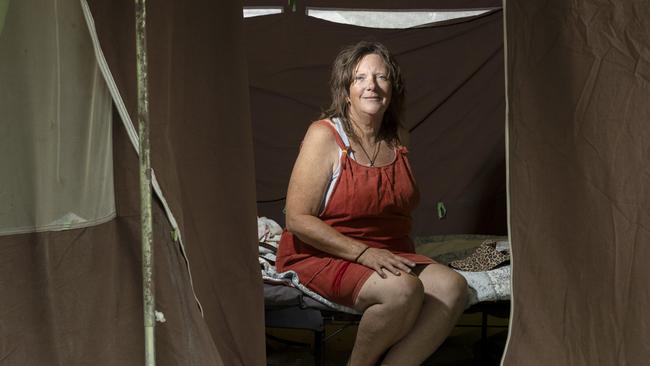
However, Mr Haywood said that he was finding more “everyday Australians” were experiencing homelessness.
“Everyday Australians have found themselves without housing because there’s no housing for people, especially if you’re not working and trying to afford rents,” he said.
“I’ve found that families are generally housed pretty quick, but most people on the streets are single people aged from 20s to 50s.
“Some people have addictions, some don’t, it’s multifaceted. It’s probably no different to what goes on in every house down the street.”
Mr Haywood also criticised recent measures implemented by the City of Moreton Bay in response to the homelessness crisis.
In December, the City of Moreton Bay banned people from sleeping in vehicles across the region.
“These restrictions put on by council have made it a lot harder for me to distribute the meals,” Mr Haywood said.
“I had a route that people knew, but now they are dispersed all across the peninsula.”
More than 16,000 people have signed a Change.org petition to reverse this ban in Moreton Bay.
“Suttons Beach used to have a community of people sleeping in their cars, but they’ve all received move-on orders and threats of hefty fines,” Mr Haywood said.
“I’ve lost touch with at least 30 people from that area. We don’t know where to find them.
“For some people, I was the only person they spoke to.
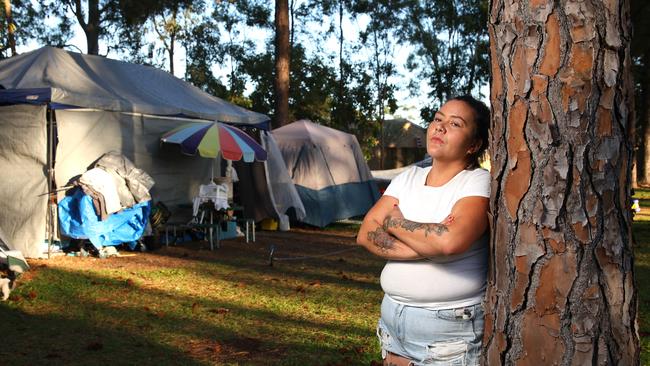
“This crackdown has already had a massive impact on the mental and physical health of these people. It’s only going to make homelessness in the area worse.”
In late December, the council also engaged private security for workers on clean-up duties over alleged violence and threats to life near homeless camps.
“It might be a way of potentially stopping any sort of safety issues that they might perceive, but you know I am yet to see anyone be abused or mistreated from anyone homeless,” Mr Haywood added.
A recent statement issued by the council read “The City of Moreton Bay has zero tolerance on aggression and violence towards its employees”.




